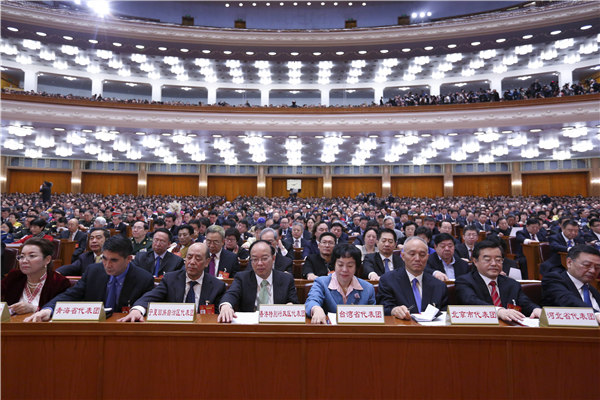
NPC deputies cast their votes at the closing of their annual plenary session in the Great Hall of the People on March 15.[Photo/China News Service]
China’s top legislature concluded its 11-day annual plenary session on March 15 after adopting a number of key documents, paving the way for the country’s development in the coming year.
Of the 2,838 deputies to the National People’s Congress who attended the closing ceremony, the overwhelming majority voted in favor of these documents, including the Government Work Report, the work report of the Standing Committee, the work reports of the top court and top procuratorate and the General Provisions of the Civil Law.
Other documents approved by the lawmakers included the 2017 national economic and social development plan and the 2017 central and local budgets.
The decision on the quota and election of deputies to the 13th NPC, and the methods for electing deputies to the 13th NPC from the Hong Kong and Macao special administrative regions, were also passed with high support.
During this year’s legislative session, national lawmakers filed 514 motions: 492 on legislation, 16 on NPC supervision and six on other issues, according to the NPC.
In his closing remarks, Zhang Dejiang, chairman of the NPC Standing Committee, hailed the achievements made under the leadership of the Communist Party of China Central Committee with President Xi Jinping as the core since the 18th National Congress of the CPC in 2012.
Zhang called for maintaining a high degree of consistency with the CPC Central Committee in thoughts, politics and actions, upholding the authority of the CPC Central Committee and its centralized and unified leadership, and faithfully implementing the Party’s policies and the CPC Central Committee’s decisions.
The people’s congress system, a fundamental institutional arrangement that integrates the principles of upholding the Party’s leadership, people as the master of the country, and the rule of law, demonstrates the characteristics and advantages of China’s socialist democracy, according to an editorial published by Xinhua on March 14.
